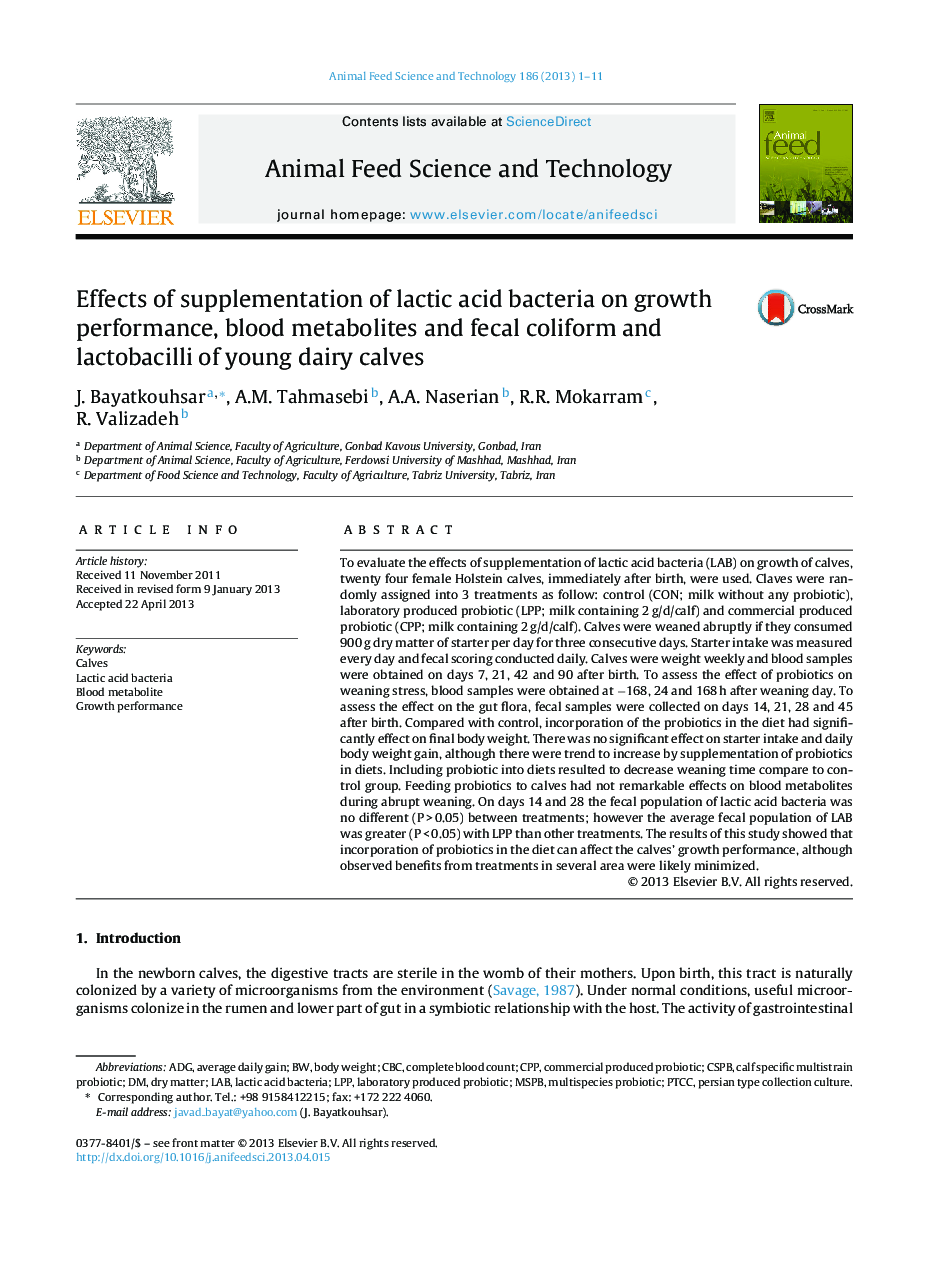| Article ID | Journal | Published Year | Pages | File Type |
|---|---|---|---|---|
| 2419681 | Animal Feed Science and Technology | 2013 | 11 Pages |
To evaluate the effects of supplementation of lactic acid bacteria (LAB) on growth of calves, twenty four female Holstein calves, immediately after birth, were used. Claves were randomly assigned into 3 treatments as follow: control (CON; milk without any probiotic), laboratory produced probiotic (LPP; milk containing 2 g/d/calf) and commercial produced probiotic (CPP; milk containing 2 g/d/calf). Calves were weaned abruptly if they consumed 900 g dry matter of starter per day for three consecutive days. Starter intake was measured every day and fecal scoring conducted daily. Calves were weight weekly and blood samples were obtained on days 7, 21, 42 and 90 after birth. To assess the effect of probiotics on weaning stress, blood samples were obtained at −168, 24 and 168 h after weaning day. To assess the effect on the gut flora, fecal samples were collected on days 14, 21, 28 and 45 after birth. Compared with control, incorporation of the probiotics in the diet had significantly effect on final body weight. There was no significant effect on starter intake and daily body weight gain, although there were trend to increase by supplementation of probiotics in diets. Including probiotic into diets resulted to decrease weaning time compare to control group. Feeding probiotics to calves had not remarkable effects on blood metabolites during abrupt weaning. On days 14 and 28 the fecal population of lactic acid bacteria was no different (P > 0.05) between treatments; however the average fecal population of LAB was greater (P < 0.05) with LPP than other treatments. The results of this study showed that incorporation of probiotics in the diet can affect the calves’ growth performance, although observed benefits from treatments in several area were likely minimized.
